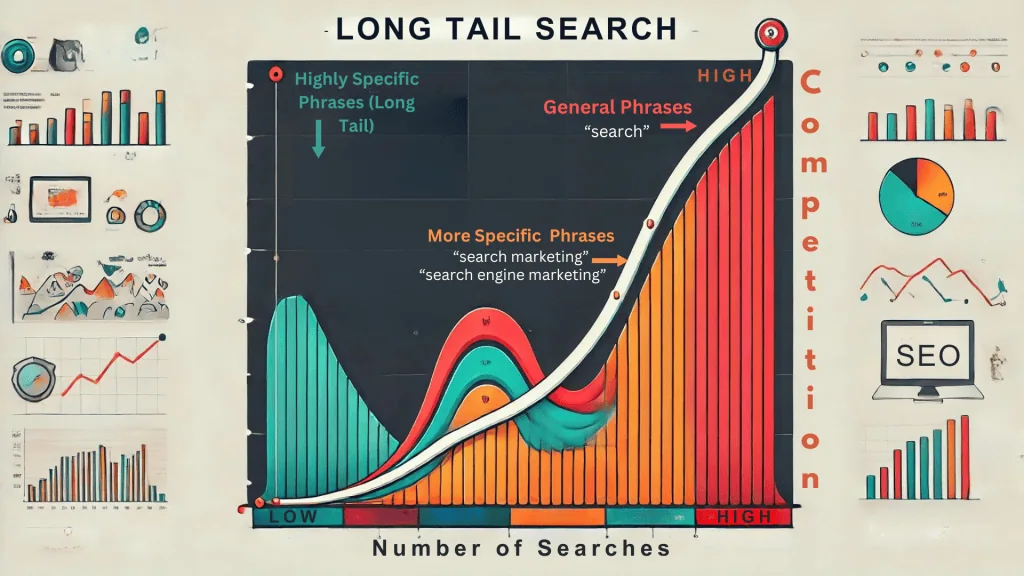Effective Keyword Research And Usage: A Beginner’s Guide
Reading time: 7 minutes
Table of Contents
Keyword research is the cornerstone of successful SEO (Search Engine Optimization) and content marketing strategies. By identifying and implementing the right keywords, you can ensure that your website attracts relevant and targeted traffic. This comprehensive guide breaks down the essentials of effective keyword research and usage for beginners, equipping you with the knowledge to improve your SE ranking and navigate the competitive landscape of digital marketing.

Understanding Your Audience
Before diving into keyword research, it’s crucial to understand the basics of SEO and your audience’s needs, preferences, and the language they use. This understanding will guide your effective keyword research and usage, ensuring that you target phrases that potential customers are actually searching for. The success of your SEO management efforts hinges on how well you align your keywords with user intent.
Identify Your Target Audience:
- Determine who your ideal customers are.
- Understand their pain points and the solutions they seek.
- Explore the language and phrases they use when searching for products or services like yours.
By getting into the mindset of your audience, you can begin to identify the keywords that will be most effective in driving relevant traffic to your site.
Leveraging Keyword Research Tools
To find the best keywords, you need to utilize keyword research tools. These tools offer insights into keyword data such as search volumes, competition levels, and related queries, which are invaluable for choosing the right keywords. Effective keyword research and usage, combined with the best SEO tools for small businesses, can make a significant difference in your overall SEO strategy.
Top Keyword Research Tools:
- Google Keyword Planner: Offers data directly from Google, including search volumes and keyword trends.
- Ahrefs: Provides in-depth analysis of keyword difficulty, search volumes, and competitor keywords.
- SEMrush: A comprehensive tool for keyword research, competitor analysis, and SEO management.
- Moz Keyword Explorer: Known for its user-friendly interface and insightful keyword suggestions.
These tools are essential for anyone looking to improve their SE ranking and get a clearer picture of the competitive landscape. The insights gained from these tools can guide your decisions on which keywords to target and how to use them effectively.

The Power of Long-Tail Keywords
While short-tail keywords may have higher search volumes, they also come with high competition. Long-tail keywords, on the other hand, are more specific phrases that typically have lower search volumes but higher conversion rates. These are particularly useful for small businesses and startups that are trying to establish a foothold in the market.
Advantages of Long-Tail Keywords:
- Lower Competition: Easier to rank for compared to broad, high-volume keywords.
- Higher Conversion Rates: Users searching with specific phrases are often closer to making a purchase decision.
- Improved Local SEO: Long-tail keywords can be highly effective in targeting local SEO for small businesses, helping you attract customers in your geographical area.
By focusing on long-tail keywords, you can attract highly targeted traffic that is more likely to convert into customers, making them an essential part of your startup SEO strategy.

Competitor Analysis: Learning from the Best
Analyzing your competitors’ keyword strategies can provide valuable insights into market trends and help you identify keyword gaps. By understanding what works for your competitors, you can refine your approach and uncover opportunities to capitalize on less competitive keywords.
How to Conduct Competitor Analysis:
- Identify Your Competitors: Determine who your direct and indirect competitors are.
- Analyze Their Keywords: Use tools like Ahrefs and SEMrush to see which keywords your competitors are ranking for.
- Identify Keyword Gaps: Look for keywords that your competitors are targeting that you’re not, as well as opportunities in less competitive areas.
By understanding your competitors’ strategies, you can develop a more effective SEO plan and position your business to outperform them in search engine results.
Optimizing Your Content for SEO
Once you have identified the right keywords, it’s essential to use them effectively within your content. This means incorporating them into your titles, headers, meta descriptions, and throughout the body of your text. However, it’s important to ensure that your keyword usage feels natural—over-stuffing keywords can lead to penalties from search engines and diminish the user experience.
In addition to keyword placement, improving your site’s design and user experience is equally important for SEO. A clean, responsive layout and engaging visuals can keep visitors on your page longer. If you’re new to styling, check out these CSS tricks for beginners to elevate your web design and create a more engaging user experience.
Best Practices for Keyword Optimization:
- Title Tags: Include your primary keyword in the title tag to signal its importance to search engines.
- Headers: Use keywords in H1, H2, and H3 headers to structure your content and make it easier for readers and search engines to understand.
- Meta Descriptions: Craft compelling meta descriptions that include your target keywords and encourage click-throughs.
- Content Body: Integrate keywords naturally throughout your content, focusing on readability and user experience.
By following these best practices, you can improve your site’s visibility and enhance your SEO management efforts.

The Importance of Monitoring and Adapting Your SEO Strategy
SEO is not a one-time effort; it requires ongoing monitoring and adaptation. The digital landscape is constantly evolving, and search trends can shift rapidly. Regularly monitoring your keyword performance and making necessary adjustments will help you stay ahead of the competition and maintain your SE ranking.
Tools for Monitoring SEO Performance:
- Google Analytics: Track the performance of your keywords and see how they impact your traffic and conversions.
- Google Search Console: Monitor your site’s search performance, identify issues, and discover new keyword opportunities.
- Ahrefs and SEMrush: Continuously analyze your keyword rankings and competitor performance to refine your strategy.
By staying vigilant and responsive to changes in search trends, you can ensure that your SEO services for small businesses remain effective and relevant.

Final Thoughts: The Path to SEO Success
Effective keyword research and usage are fundamental to achieving SEO success, especially for small businesses and startups. By understanding your audience, leveraging the best SEO tools for small businesses, and focusing on long-tail keywords, you can significantly enhance your SEO management efforts. Analyzing competitors, optimizing content, and continuously monitoring performance are also critical steps in building a robust SEO strategy.

Whether you’re exploring how to do SEO on your own or seeking professional SEO services for small businesses, this guide provides the foundational knowledge you need to improve your SE ranking and drive meaningful traffic to your website. Through careful planning and execution, you can turn keyword research into a powerful tool for growth and success. Discover the power of online visibility with Owltek Solutions’ cutting-edge search engine optimization services. Explore how we can elevate your digital presence today!
**This post contains affiliate links, meaning I may earn a small commission if you make a purchase through one of them. Rest assured, I only recommend products I truly love. Your support helps keep my creative business thriving — thank you!**
